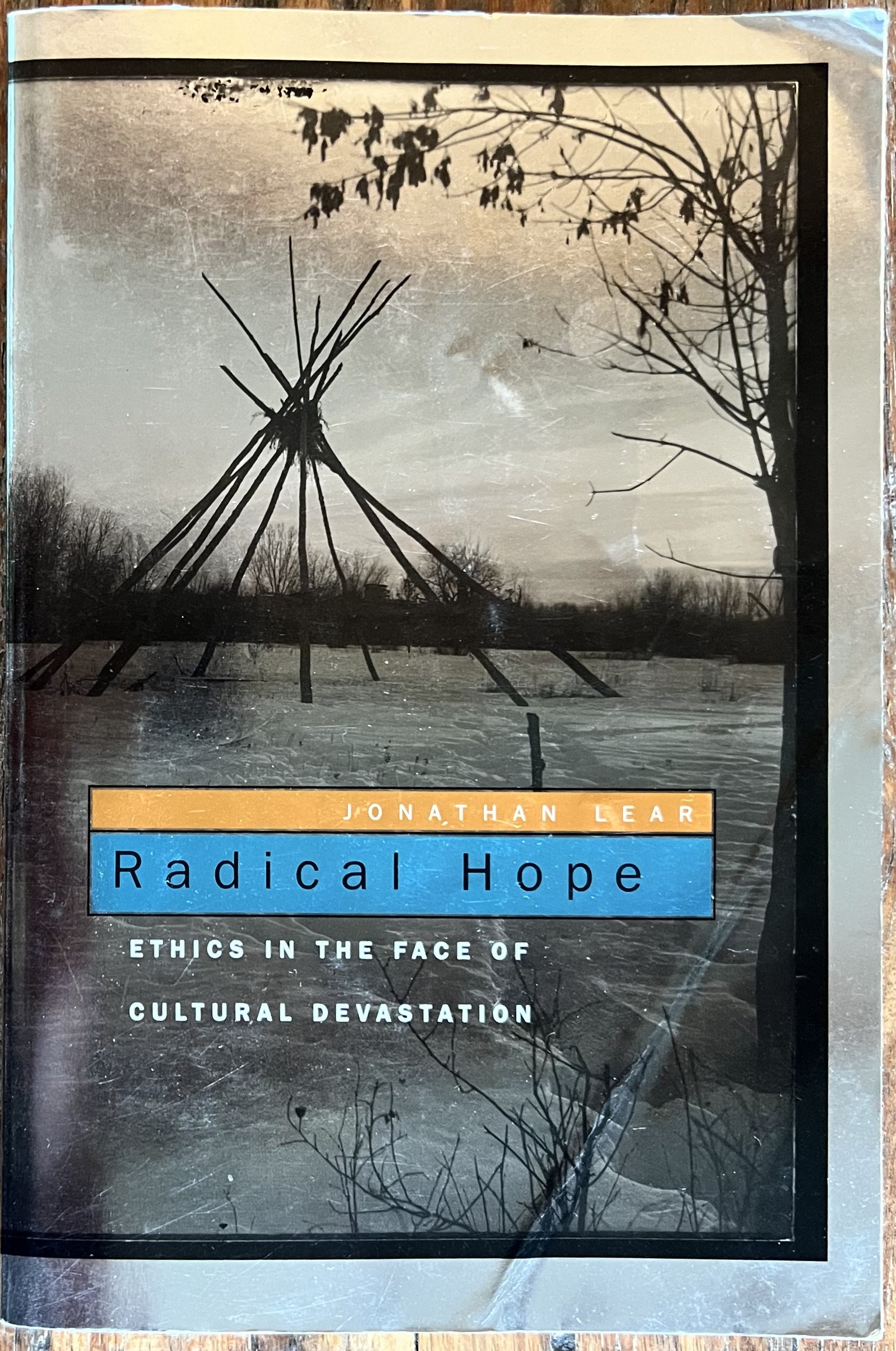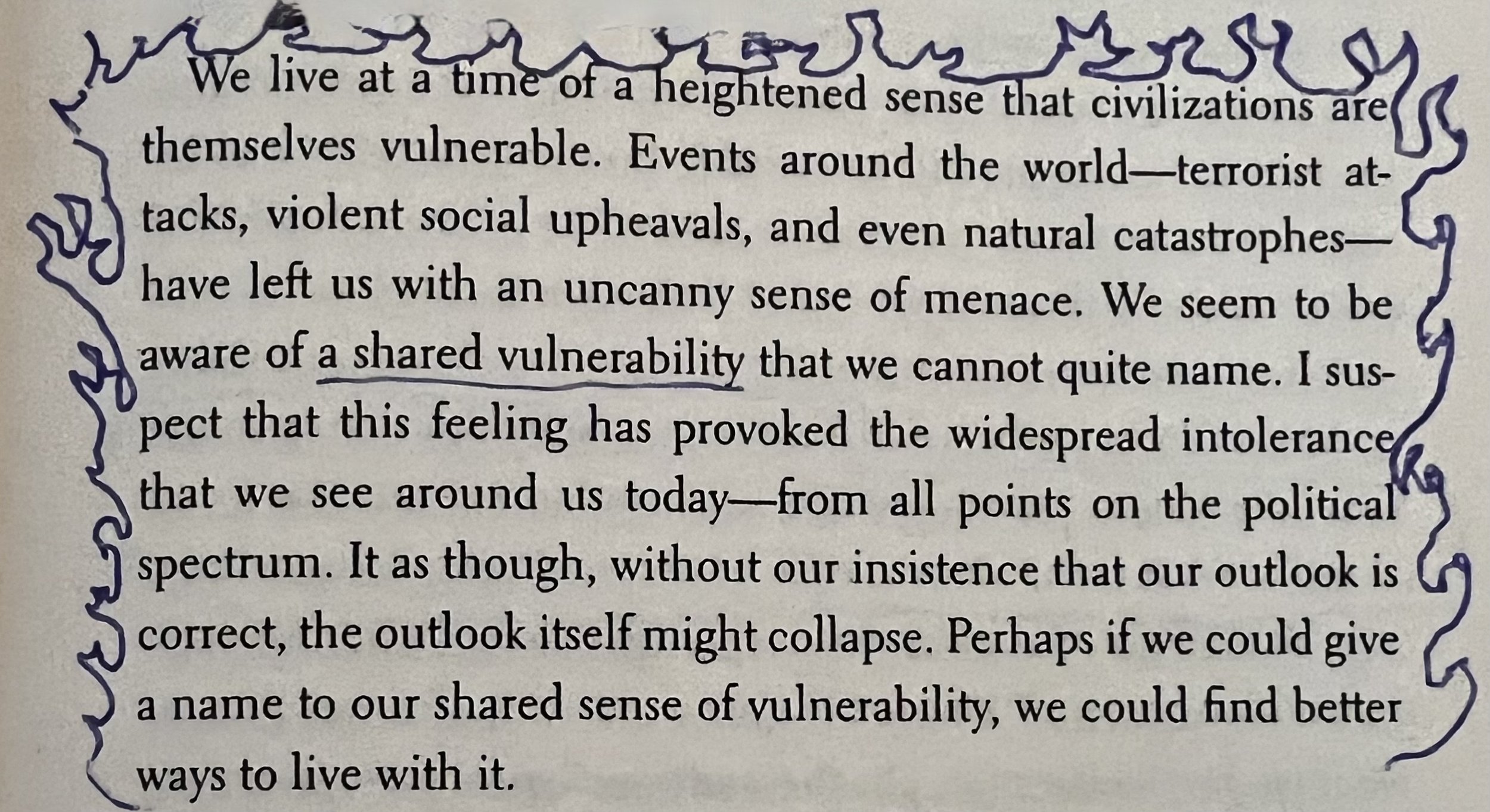Recreating a Narrative of hope
Adapting to Change and Moving Forward Together
It’s easy to become overwhelmed by the weight of the world today. Between the ongoing challenges of climate change, political division, and economic uncertainty, it can feel as though the world is moving faster than we can keep up. This feeling of disruption can often lead us to retreat into old ways of thinking, or to dismiss the urgency of change entirely. But the truth is that our commitment to improving society—building something better for ourselves, our children, and future generations—may depend not just on the changes we make but on the narrative we embrace to face them.
One of the most powerful ideas for navigating times of deep uncertainty that I’ve come across, I read in the book Radical Hope by philosopher Jonathan Lear. His work looks at how we can adapt to fundamental shifts—particularly when the very framework of our worldview seems to be crumbling. One of the central stories Lear examines is that of the Native American Crow people. When their way of life was shattered by the westward expansion of the United States, the Crow were forced to navigate a world they no longer recognized. Their traditions, their land, and their society were in flux. What Lear calls “radical hope” is the ability to look into an unknown future, where traditional ways no longer apply, and to still move forward—not with blind optimism, but with the belief that a new path is possible, even if we can’t see it clearly yet.
This ability to create a new narrative in the face of profound disruption is just as relevant today as it was for the Crow. At a time when the world feels increasingly unstable, it's easy to sense a shared vulnerability—one that we can’t quite name. Jonathan Lear captures this feeling perfectly:
The challenge, as Lear suggests, is to name this vulnerability and, in doing so, find a way to live with it. If we can acknowledge that we're all feeling uncertain, we might open the door to real dialogue—one based on empathy, rather than defensiveness. Whether you're left, right, or somewhere in between, recognising this shared vulnerability could be the first step toward rebuilding trust and cooperation in a world that is changing faster than we can keep up with.
We are now facing our own kind of “disruption.” Climate change is no longer something in the distant future; it is a present-day crisis with real-world consequences. Rising sea levels, increasingly destructive storms, and shifting ecosystems are already affecting us all—no matter where we live or what our political affiliations might be. We all have a stake in this, and the only way forward is adaptation. This is not an abstract issue confined to one side of the political spectrum, nor is it something that can be easily ignored. The question is not whether the climate is changing, but how we choose to respond.
It’s easy to dismiss the need for change when it feels like change is what is threatening your way of life. And for many, especially those who feel alienated from the more progressive narratives of climate and culture change, there can be an instinct to dig in, to reject the “left-wing agenda” that seems to dominate these discourses. But that impulse often ignores the reality we are all facing. This isn’t a battle of ideologies—this is about surviving and thriving in an environment that is changing, whether we like it or not.
That’s where the idea of Radical Hope can help us shift our mindset. Rather than viewing the climate crisis, or the various crisis of political natures that we experience in the world as insurmountable challenges, we can reframe them as opportunities to innovate, adapt, and find common ground. What does it look like to create jobs through new technologies that reduce emissions, to build stronger infrastructure to withstand extreme weather, or to reimagine our agricultural systems to be more sustainable? These solutions don’t have to undermine anyone’s values; in fact, they can reflect core principles like hard work, ingenuity, and a commitment to the well-being of our communities. Similarly, what does it look like to reduce inefficiency in the public service, or in government, or to negotiate for a more equitable allocation of funds to support shared interests that both achieve the objective as well as greater stability and sustainable growth of society?
For those who might feel that this narrative of hope and adaptation threatens their values or sense of identity, it’s important to understand that this isn’t about abandoning what matters most.
It’s about recognizing that the world is changing—and we, as a society, have the tools and the ingenuity to adapt. Whether you're concerned about the economy, your family’s future, or the state of your community, there is a path forward. But that path requires that we engage with reality, that we set aside ideological divisions and come together to find practical solutions. It’s about moving forward, together, into an uncertain but hopeful future.
In the end, this isn’t about surrendering to the forces of nature or political correctness. It’s about taking responsibility for the world we’re leaving behind and making sure it’s one worth inheriting. Just as the Crow people did when their world was upended, we can find hope in our ability to adapt, to innovate, and to create a future that is better, not just for us, but for generations to come.
Let’s not let fear or partisanship stand in the way of progress. We have everything it takes to build a better future—if we’re willing to face the challenges with hope, with clarity, and with a commitment to each other. It’s time to rewrite the story, together.


